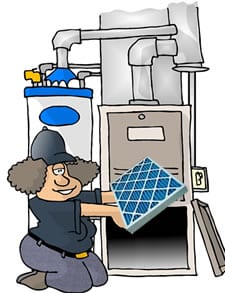Author: KP & Associates
May 31, 2016 / Selling
5 Tips to Get You in The Sell-My-Home Mindset

The first step in selling your house is obtaining an independent, unbiased home valuation. Provided by a licensed real estate agent, it’s provides you with an idea of what your home is worth given current market conditions. This is also your opportunity to find the right realtor to sell your home on your behalf.
The second step is to get yourself in the sell your home mindset, particularly if you’ve bene living in your home for a long time. And there are several things you can do in your house before you ask for the valution.
You’ll not only learn more about the current condition of your home but will be able to answer your realtor’s questions.
Locate The Important Papers
The operating manuals for your appliances and HVAC system, notes about the paint colors you used on your walls and any applicable warranties are relevant for any a new buyer. At the same time, having utility and annual maintenance bills will demonstrate to your agent and the buyer that you mean business and provide a level of transparency.
Get serviced. Get Estimates
Take the time to get things serviced from appliances, to alarm and HVAC systems. You’ll have a better understanding on potential life expectancy and get a cost and time estimate on a replacement if necessary. You may not be prepared to overhaul worn-out items now, but knowing how much it will cost could give your real estate agent an edge in negotiations. A bidder may ask for $10,000 off the asking price for a necessary repair. But your research may show that update would only cost half.
Repair & Replace
No time like the present to tackle the repair to-do list. And small updates such as replacing old kitchen hardware or bathroom and kitchen fixtures can make a real difference. Replacing a 10-year old garage door is a relatively inexpensive update that is safer and easier to use.
Don’t plan any major updates before the home valuation when you will get a second opinion you’re your real estate agent. Not all renovations are equal and will make a difference in the asking price.
Update Your Curb Appeal
The entrance way to a home says a lot about the people who live there and can make a difference to a buyer. If you’ve been planning on painting the door and the trim, repairing the fence, or fixing the cracks in the driveway this is the time. Power-washing the exterior siding and windows is a minimum investment and will give your home a huge lift.
DeClutter | Deep Clean
Eventually this will have to done before you sell your home so it doesn’t hurt to get a jump on it early. Establishing some guidelines on what is kept and what gets chucked will limit the number of decisions you have to make.
A few other tips:
- Inquire with local charities as to their donations regulations. Some will pick up your junk. There are also consignment stores that can sell some of the big items on your behalf. And rent a bin – saves endless trips to the junkyard.
- Get the family involved, have them purge their own stuff. And if becomes absolutely overwhelming, hire a professional organizer to get you through the worst of it.
- When we say deep clean – we’re talking DEEP. It’s time to look at the items that get ignored like the blinds, underneath the stove, vacuum your fridge’s condenser coils and more. Save your energy for the important de-cluttering tasks by hiring a professional cleaning company.
Before you start and take some photos. If you do sell you’ll think back to the old house, with its clutter and wish you’d kept a few pictures to remind you of what those wonderful early years were all about.
It’s happened before, after meeting with your agent and having a home valuation completed, you may decide that your old house is where you really want to be. And that’s just fine.
You’ll be able to enjoy the improvements you’ve made, have a better understanding of how much your home is worth and have established a relationship with a realtor that you can use when you are ready to sell your home.
Our team of real estate sales professionals is committed to finding you, your dream home. Whether you’re looking to buy or sell, the Karen Paul team is here to help with any questions.
Interested in learning more? Send us a message here and we’ll be in touch with you soon after.
May 18, 2016 / Community
Ready, Set, Wear It! Boating Safety Comes to Burlington

As a waterfront community Burlington is fortunate to be close to some of the finest marina facilities on Lake Ontario.
Anchored in the east in Oakville is Bronte Harbour Marina (pictured below), a full-service marina located in the Heritage Waterfront Park in the Village of Bronte. The facility boasts a boat yard, fuel dock, stable floating docks with both electrical and water hook-ups dockside.
On the western edge of the city is Harbour-West Marina in Hamilton, a 7-day a week operation offering everything required for a pleasurable boating experience.
There are also several yacht clubs in the area where you can learn to sail or participate in regular sailing race days without having to own a boat. (Check out LaSalle Park Marina Association which also hosts the Burlington Sailing and Boating Club.)
Every boater will tell you that life begins with a boat, and also tell you that boating is far more enjoyable when safety is front and center. That means that the captain and the crew are always wearing PFDs (personal flotation device) or lifejackets when out on the water.
Since it’s such an important message, Canada’s leading boat safety organization, the Canadian Safe Boating Council along with its counterparts world-wide kick off Safe Boating Awareness Week at the beginning of the first long weekend of the summer, this year May 21-27.
Since 1995, the campaign has been the mainstay of boating safety outreach to the over 16 million people who recreate on Canadian waters each season.
The core of all of the safe boating campaigns are 5 key messages that have been consistently delivered to the boating community.
- Wear a PFD or Lifejacket – Legally all boats must carry PFDs on board, appropriately sized for each passenger. But don’t just carry it, WEAR IT.
- Don’t Drink & Boat – Boating under the influence is not just illegal; it’s irresponsible. Wait until you get back to the pier to have that beer.
- Take a Boating Course – The law now requires that anyone driving a motorized boat must have a pleasure-craft operator card. It’s for your own safety and that of your passengers. Don’t get caught without one. Take a course and get your license!
- Be Prepared: Both You and Your Vessel – Ensure your boat has all the required safety gear and sufficient fuel. Be sure the weather is suitable for your vessel’s capabilities.
- Be Wary of the Dangers of Cold Water Immersion – Cold water is a significant risk. Learn how to protect yourself.
The Canadian Safe Boating Council provides numerous videos on safe boating from required equipment on your boat, weather, calling for assistance, how to be a responsible boat operator and more.
Central to the boating safety message is the Ready Set Wear It! campaign to have as many boaters wearing PFDs photographed in one place. Numerous events are held world-wide and each year the event gets bigger. Last year’s campaign set a new world record for world-wide participation:
- Participants – 10,917
- Inflatable Life Jackets – 1,927
- Inherently Buoyant Life Jackets – 8,990
- Dogs in Life Jackets – 65
- Total Number of Events – 257 – 15 in Canada
Anyone can host a Ready Set Wear It! campaign. Boaters sign up for an event, arrive in their PFDs/lifejackets and during the photo taking, inflate their PFDs where appropriate. There’s a dedicated Facebook page to load photos.
Something new this year, the CSBC is asking boaters to wear their PFD to work as a conversation piece for safe boating.
It’s great living in a community where it’s easy to access water and participate in one of the greatest family recreation past times. But at the same time, we need to be responsible.
Be a SMART Boater and as the Canadian Safe Boating Council says… Don’t Just Carry It, Wear it!
And if you do wear your PFD to work, be sure to send us a photo 🙂
Our team of real estate sales professionals is committed to finding you, your dream home. Whether you’re looking to buy or sell, the Karen Paul team is here to help with any questions.
Interested in learning more? Send us a message here and we’ll be in touch with you soon after.
May 12, 2016 / Your Home
A Great Looking Front Door Says It All!

Believe it or not, your front door says a lot about you and your home. Beyond having great curb appeal, a front door will protect you from the elements, intruders and help make a great first impression on friends, family and your neighbours.
According to ancient Greek architecture and Chinese philosophy, the colour of the entrance way reflects the character of the people inside. We thought we’d share some of the character/colour matchings just for fun.
- A classic red door for example says that you are welcoming and denotes good energy. In colonial times, a house with a red door was home to a friendly family who would not mind putting up a tired traveler.
- Black doors symbolize authority and strength, while white front doors symbolize neutrality and purity.
- A grey door symbolizes dignity and knowledge, while a multi-colored door, according to Dionysian theory, suggests that this is home of creative happiness.
Regardless of the colour, a good paint job shows that you care about your home, and that says a lot to a potential buyer.
Looking for a new front door?
Mike Holmes, in a recent National Post article stated that ‘when it comes to performance there are some basic things your front door must do’.
First and foremost, your front door should be strong enough and have a solid frame to prevent intruders, including those that kick-in a door.
Your door should also open and close properly to prevent water from entering your home and air escaping. If the weather stripping at the bottom of your front door has seen better days, it might be time replace or upgrade the front door of your house.
In terms of materials, Holmes suggests that the top three materials best suited for doors are:
- wood,
- fiberglass
- steel.
Holmes himself, says he favours wood doors because they are not only top-of-the-line but look great. The down-side is that they are often the most expensive and require regular maintenance. A storm door or an overhang can give a wood door a little added protection.
If your budget is a little tighter, Holmes recommends either a wood-looking fiberglass door which are less expensive but not as solid, or a “steel insulated door with a wood frame. They’re strong, durable and don’t require a lot of maintenance.”
Some residents favour glass in the door for extra light or for the pets. If you’re leaning towards glass, Holmes recommends safety glass that is also tempered. While glass looks great, it’s not as strong as wood or steel and doesn’t insulate as well.
Locking Mechanism:
A door is really only as good as the locking system. A multi-lock secures the door at three points which not only makes your door more resistant to home invasions but up to 45% more airtight – which is a real bonus. (See Justin Loncaric’s blog post on other ways to reduce home invasions.)
Lighting:
Is your front entrance as well as house number easy to spot at night? Will guests be able to navigate to and from safely? Adequate lighting, even lights programmed on a timer will tell people that you are concerned about safety.
Mailbox:
Is your mailbox large enough for your everyday mail, or is it a challenge for the postal carrier to fit your papers and magazines inside it? And if you have other deliveries on a regular basis, are there places for them to stow ‘stuff away’ when you’re not home.
A front door probably won’t make or break the sale of your home, but it can easily add to your home’s value and increase the curb appeal to potential buyers – say nothing of what the colour of your front door is telling your neighbours!
Our team of real estate sales professionals is committed to finding you, your dream home. Whether you’re looking to buy or sell, the Karen Paul team is here to help with any questions.
Interested in learning more? Send us a message here and we’ll be in touch with you soon after.
May 3, 2016 / Community
Plant A Tree With Mom This Mother’s Day

Trees are strong, majestic and beautiful. Much like Moms.
Maybe this is the year your family can celebrate Mother’s Day by purchasing and planting a tree in the yard. It’s a great family activity, a great way to recognize Mom, and play an important role in keeping Burlington safe and healthy.
Trees play an important role
in the urban environment.
If you’re curious about the role the urban canopy plays in keep our cities and our lives happy and healthy – consider the following:
- Their role in stopping global warming: Trees intake carbon dioxide and release oxygen, giving them a critical role in the reducing the amount of CO2 in the air. According to Arbor Environmental Alliance, a single tree can absorb CO2 at a rate of 48 lbs per year making planting a tree one of the cheapest and most effective ways to draw excess amounts of CO2 from the air.
- How they cool our yards: Trees provide shade and transpire water which can subsequently cool a yard by 9 degrees. Trees also reduce ‘heat sinks’ (environments that absorb excess heat) which are generally speaking 6-19 degrees warmer than their surrounding areas.
- Lower our utility bills: Trees can be used to block direct sunlight from homes that then can lower air-conditioning bills. One large tree strategically placed in a yard can replace 10 room-size air conditioners operating 20 hours per day.
- Help sell homes: Most realtors will advise that the presence of trees makes it easier to sell a home. Some experts have estimated that a well maintained tree can add as much as 20 percent to the value of a home.
Trees Need Care.
And that care and maintenance is different from just standard gardening practises.
Basic tree maintenance includes:
- Pruning: Some people consider pruning a negative action, but regular pruning helps trees develop a strong structure. Dead, defective, and diseased limbs, poorly attached or even low branches that interfere with vehicle or pedestrian traffic should be removed. Additional pruning may be necessary to thin out the canopy to allow the wind to blow through.
- Mulch at the base of the tree helps insulate it during hot and cold temperatures. Mulch also helps keep the roots moist and block the growth of weeds. In the end, just leave the mulch to do its job and not pepper it with grass clippings or planted flowers.
- Water: Newly planted trees require regular watering as they use lots of energy expanding and strengthening their root structures. The soil around the tree should be moist but not soaking. Overwatering can cause root rot, or drown the tree.
- Insect/disease control: Keep an eye on the tree roots for a change in colour which could mean a nutrient deficiency. Lawn mowers or string trimmers can injure a tree making it more susceptible to bacteria and fungi, eventually weakening it. Even excessive bark damage can result in the death of a tree.
A professional arborist who often work with professional tree maintenance companies can assist in diagnosing tree problems, as well as guide you through choosing the right tree and location for your home.
The City of Burlington & Trees.
“The city of Burlington plants approximately 1,000 trees annually as replacements, through capital projects, development and in response to resident requests for street trees. Trees are typically planted in boulevard settings, but are also planted in parks.
The sustainability and health of the future urban forest will rely on the selection and planting of a diversity of tree species, planted in appropriate locations and maintained until they are well established. The city is committed to establishing a more diverse future urban forest, and working with developers and contractors to ensure a diverse range of native and non-native non-invasive tree species get into the ground.”
In an effort to keep the trees healthy, Burlington’s Roads and Parks Maintenance Department enlists residents to assist in maintaining the trees on the street boulevards. In addition to the regular maintenance tips above, the city asks that you NOT:
- Remove support stakes within the first 2 years of planting
- Prune or trim trees. Pruning of city trees is provided by city staff or contractors trained in arboriculture practices at least every seven years taking into consideration tree characteristics, severe storms, insect infestation, wild animals etc.
- If you do have a problem with a tree call the Roads and Parks Maintenance Department to arrange for an inspection should anyone feel that a tree needs help. .
Protecting our urban canopy is important for our urban environment.
Contact the following Burlington businesses (tree surgeons, specialists or arborists) to learn more about planting a tree in your yard: Arborcorp | Arborwood | Timberwolf Tree Care & Consulting. Resources for this article: Enlightenme.com
Surprise Mom with something different for Mother’s Day this year and protect Burlington’s urban environment – say nothing of keeping the city cooler!
Our team of real estate sales professionals is committed to finding you, your dream home. Whether you’re looking to buy or sell, the Karen Paul team is here to help with any questions.
Interested in learning more? Send us a message here and we’ll be in touch with you soon after.
Apr 21, 2016 / Real Estate Know-How
How To Reduce The Chance Of A Home Invasion By 90%

No one wants to deal with a home invasion. But how do you reduce the chances of one happening?
Fortunately, home invasions are a well-studied phenomenon — especially by law enforcement.
Numerous studies have identified specific things you can do to cut your risk dramatically.
Here are some ideas:
- 34% of home invasions occur through the front door. Experts recommend investing in a door with a top-quality locking mechanism. (The best are those that lock at three points of contact.)
- 50% of burglars will be deterred if your home has some sort of video monitoring system. No thief wants to see their face on YouTube!
- Unfortunately, signs and window stickers warning of an alarm system do not deter thieves. However, 62% of burglars will immediately run away when an alarm goes off. Always turn on your alarm system when you’re not home!
- 22% of burglaries occur through a sliding glass door or patio door. Make sure it’s locked and also use a solid metal jammer.
- Some thieves use frequency scanners to gain access to garages. Police recommend changing your remote entry code regularly and putting blinds or curtains on garage windows so thieves can’t see (and be tempted by) any valuables inside.
As you can see, there are many simple things you can do to reduce your chances of a home invasion dramatically.
The effort is worth it.
JUSTIN LONCARIC | Real Estate Sales Professional
Cell: 905-407-9837 | Office: 905-333-6234
[mail_to email=”info@justinloncaric.com”]info@justinloncaric.com[/mail_to] | karenpaul.com



Interested in learning more? Send us a message here and we’ll be in touch with you soon after.
Apr 14, 2016 / Buying
Under The Microscope: A Real Estate Agent’s Day

So, how does a real estate agent spend their day? Good question.
On average, every real estate agent spends about 9 hours of ‘behind the scenes’ work for every hour they spend with a potential buyer or seller. So, what do they do?
Searching:
Just like everyone else, real estate agents spend a lot of time online, checking out – that’s right, real estate listings.
That’s market research and it’s invaluable when servicing our customers, whether they are buying or listing a property for sale.
But most agents are also looking for homes for buyers. And some buyers have very specific requirements beyond the standard number of bedrooms, particular neighbourhoods or amenities.
Sometimes matching a buyer with a home can take some work including scoping out a neighbourhood so there aren’t any disasters like in this Realtor video.
And listings can appear and disappear almost overnight, so most real estate agents make checking the Multiple Listing Service a daily routine.
Networking & Prospecting:
We’re always on the look-out for new prospects. Not only are we previewing other properties but we are taking that time to network with other agents talk up a listing or put feelers out for a house that a client may be looking for. Personal interaction is still one of the best ways to get the word out.
Marketing:
Real estate agents invest a lot of time and dollars into marketing a property. And the list of opportunities is endless from magazine and newspaper ads, fliers, online advertising to open houses.
Handling the Offers:
We spend a lot of time at the negotiating table. And that involves writing offers and counteroffers, which is a critical step in a real estate transaction that can either earn or save you several thousands of dollars.
Getting the best price requires an agent explaining to a client how to counteroffer and the best ways to get the desired results. Just tracking how the negotiations are going takes time.
Being On Hand:
As your advocate, your real estate agent may be the person present during a home inspection. Then there is the organizing of numerous small tasks that need completing: staging the home, the photographer, showings… well the list is endless.
Keeping Calm:
Not every sale goes smoothly and real estate agents spend a lot of time fixing issues and putting out fires – often without the knowledge of their client.
And when the pressure is on and seller is juggling multiple offers or the buyer is waiting on a signature, it’s your real estate agent that keeps the situation calm.
Selling or buying a house is a very emotional experience and it’s important to have someone in your court that stays positive and works towards a great solution.
And that just about sums up a typical day for just about every real estate agent!
Our team of real estate sales professionals is committed to finding you, your dream home. Whether you’re looking to buy or sell, the Karen Paul team is here to help with any questions.
Karen Paul & Associates | Real Estate
905-333-6234 | karenpaul.com | info@karenpaul.com
Burlington • Oakville • Hamilton • Milton • Niagara
Interested in learning more? Send us a message here and we’ll be in touch with you soon after.
Apr 7, 2016 / Buying
The Anatomy of a Real Estate Listing

So you’ve decided to sell your home, and you’ve settled on a real estate agent to represent you. The next step is to draw up a real estate listing agreement with your agent.
The listing agreement has to two purposes. First it gives your real estate agent the authority to act on your behalf and find a buyer for your property. Secondly it outlines the details of the property and covers the terms and the conditions of the sale.
A legally binding contract, it’s worth taking a moment to read it carefully to make sure you fully understand what you’re signing.
TYPES OF REAL ESTATE LISTING AGREEMENTS:
There are two types of real estate agreements: exclusive and multiple listing.
An Exclusive Listing Agreement gives the real estate agent the exclusive right to find a purchaser for your property. This is usually for a fixed time period (30-90 days) which can be renewed.
A Multiple Listing Agreement allows the real estate agent to list the property on a multiple listing system (MLS). A computerized real estate listing system, it’s available to all participating real estate board members. It’s like having a team of real estate sales professionals working on your behalf. The time period is usually 60 days although that is negotiable.
COMPONENTS OF THE LISTING AGREEMENT:
Most real estate listing agreements are standard, pre-printed forms with all of the expected wording and clauses. There are blank sections however, that need to be filled out by the vendor and the real estate agent.
The Property Tangibles:
Every listing agreement has to set out the pertinent details of the property including:
- list price,
- legal address,
- a description of the type of property including such things as property dimensions, number and size of rooms, type of heating system, main recreational features, amenities etc.
- Any chattels or extra features (appliances, draperies, carpeting etc) that are included in the list price are also listed.
The Intangibles:
Other items generally included in the listing agreement include:
- mortgage details including balance, monthly payments and due date,
- the annual property taxes,
- any liens, rights of way, easements or other charges on the property.
This is the time to discuss ‘disclosure’ with your real estate agent. The vendor is obligated to report any relevant facts or material details that could either affect the sale of the property or influence a buyer’s decision to purchase.
Most post-sale disputes can be avoided if accurate and appropriate disclosures are made.
Defining the Real Estate Agent relationship:
The last part of the real estate listing agreement establishes the rights and obligations of both the vendor and the agent.
What you will see covered here are:
- the fee or commission rate,
- how the commission is earned and when it will be paid,
- the marketing opportunities your realtor plans to use,
- any additional services that your real estate agent agrees to provide.
Once you have come to an agreement on all the terms, the agreement is signed and witnessed, and you receive a copy.
Most listing agreements have a set terms (30, 90 days and 6 months) which is negotiable. Sometimes, the real estate agent inserts a cancellation clause, which pre-empts a need for an expiry date.
As with everything else in the listing agreement, it’s wise to heed the advice of your real estate agent while considering your comfort level.
Your real estate agent is your advocate and has your best interests at heart. Believe it or not, they want to sell your house for the best price, just as much as you do!
Our team of real estate sales professionals is committed to finding you, your dream home. Whether you’re looking to buy or sell, the Karen Paul team is here to help with any questions.
Interested in learning more? Send us a message here and we’ll be in touch with you soon after.
Mar 30, 2016 / Buying
Home Inspections: For Buyers & Sellers

In February, Queen’s Park tabled a bill to mandate the licensing of Ontario home inspectors.
The new legislation among many things will effectively:
- Make it illegal to perform a home inspection without a license. Although some home inspectors who meet specific criteria may be grandfathered.
- Will give the province powers to make regulations “prescribing certain types of inspections to be included in or excluded from the definition of ‘home inspection’”
- And allow the government to make regulations stipulating what types and amount of insurance home inspectors must carry including errors, omissions and commercial general liability.
There is a professional home inspectors organization the Ontario Association of Home Inspectors which exits to enhance the technical skills and professional practice of home inspectors while promoting public awareness. However it doesn’t have a licensing mandate.
The OAHI philosophy is that home inspectors aren’t created in just a single course. Professionals that have a combination of experience, education and know-how in a variety of technical fields make the best home inspectors.
Since 1994, the OAHI has done a great job of controlling the wild-west of home inspection, advocating for the home owner, the real estate sales professional and the home inspectors themselves.
What is the role of a home inspector in a real estate transaction?
Whether you are buying, selling, investing in real estate a home inspection can save you a lot of heartache and in some cases several thousand dollars.
While home inspections can vary for a number of reasons (townhouse vs condo vs single family dwelling) all home inspections cover the basics, which includes an inspection of the:
- exterior/interior condition of the home
- building foundation
- roof coverings & support structure, flashings & gutters
- basement/attic
- insulation quality
- garage
- Plumbing/HVAC/electrical
What are the advantages of a home inspection?
For the Seller:
A pre-purchase home inspection can help prevent buyers from walking away from a deal because of deficiencies. It also helps a seller comply with the full-disclosure real estate laws by demonstrating transparency and that nothing has been overlooked.
In a seller’s market, where transaction turnarounds are quick having a having a home inspection completed prior to placing it on the market can work in your favour in a number of different situations:
- If the buyer doesn’t have time to do their own home inspection before the offer date, they may pass on the house.
- If the buyer has already done a home inspection on another house but lost the competition, they may fear losing again to the highest bidder, pass on getting a home inspection and pass on your house.
- There are times when a home inspector can make themselves available during the marketing of the home to answer any questions. This might be useful in older homes that may require renovations.
- There is the opportunity to fix any problems before putting the home on the market and having it on the record that those repairs were completed.
- It avoids having a stream of home inspectors representing different buyers parading through your house.
For the Buyer:
Most home buyers understand the advantages of having a home inspection adding it as a condition on the offer to purchase.
It’s wise to choose a home inspector based on reputation, credentials and professional affiliation like the OAHI. Using a local home inspector familiar with the neighbourhood and it’s issues also has advantages. Your real estate sales professional may recommend different home inspectors they have worked with previously.
A completed home inspection not only provides a detailed breakdown of your home but information on when to anticipate major upgrades such as putting on a new roof. This allows you to budget or plan for future financial investments.
Having a pre-purchase home inspection simply makes sense. It’s part of the due diligence for any purchase and it makes life easier for both the buyer and the seller.
If you have questions about home inspectors, be sure to speak with your real estate sales professional – your advocate in purchasing or selling a home.
Our team of real estate sales professionals is committed to finding you, your dream home. Whether you’re looking to buy or sell, the Karen Paul team is here to help with any questions.
Interested in learning more? Send us a message here and we’ll be in touch with you soon after.
Mar 23, 2016 / Buying
‘The Offer To Purchase’ – Breakin’ It Down

From viewing houses to signing the offer, your real estate sales professional is with you every step of the way. A large part of their role is explaining the various steps in involved in either buying or selling a house.
Grounding yourself in real estate know-how is always a good idea and not just for new buyers. Things change and if it’s been 25 years since you purchased your home, it might be wise for you to brush up on real estate terms and information.
What follows is very basic information on The Offer to Purchase. It may address some of your questions or introduce new ones that you should discuss with your real estate agent.
The Offer to Purchase is the first step in your real estate transaction. In broad legal terms, the offer is a promise to enact on something, in this case the purchase of a property. While there may be verbal communications about the offer, counter offers and possibly acceptances, it’s not until the offer is written and properly signed that it becomes a legal and binding real estate contract.
Major Types of Offers:
Firm Offer: As the name suggests, a firm offer has no conditions. It indicates that the buyer is certain and suggests they have done their due diligence on the sale. For the
seller, this is the ideal type of offer. Barring extenuating circumstances, without conditions of sale, the buyer is unable to back out of an accepted offer.
Conditional Offer: Probably the most common type of offer, the buyer agrees to purchase a home as long as a number of pre-set conditions are met.
Multiple Offers: Receiving more than a single offer is the ideal situation for the seller. It’s the responsibility of the real estate sales agent to wade through the pros and cons of each offer in search of the best one. While price plays an important role in accepting an offer, stipulated conditions can also be a factor.
Inside The Offer:
All real estate offers of purchase start with the basics including: the date, legal description of the property and the names and addresses of both the buyer and seller.
But it also includes:
The Price: This is the amount the buyer is willing to pay for the property. Sellers shouldn’t be surprised when the price is not the exact asking rice but higher or lower than the listing price.
Expiration Date: Nothing lasts forever and sometimes an expiration date will encourage a seller to move a little quicker.
The Deposit: Every offer includes the amount the buyer is willing to put down. It is then applied against the purchase price when the deal closes. Your real estate sales professional will recommend and help you decide on an appropriate deposit size.
Conditions: In most cases, the buyer will establish a set conditions that must be satisfied before the offer is considered legally binding. Although I’ve had my fair share of somewhat strange conditional requests there are some standard ones such as:
- subject to a satisfactory home inspection,
- buyer obtaining financing or insurance (home, title insurance)
- standards certificate for such items as a well or sceptic tanks
- receiving or having conducted a current survey
- finally some buyers may subject the offer on selling their own home first.
Inclusions and Exclusions: This is a list of items that can range from appliances to light fixtures to window coverings. If things aren’t included on the list, it’s incumbent on the buyer to remove everything before the closing date.
Closing Date: This is the day of possession, when the property is legally transferred from the seller to the buyer and funds are transferred.
Accepting The Offer:
There’s no rule that the first offer has to be accepted. And it’s quite normal to make counter offers if you aren’t happy with what’s been presented. This is where your real estate agent’s market knowledge and expertise really shines. A seller and buyer may go back and forth several times during the negotiation process before the final terms and conditions of the sale are set.
Once an offer is accepted, signed, and the conditions are met, the offer to purchase becomes a legally binding contract.
In Between The Offer & Possession:
At this stage the lawyers become involved. Beyond reading the actual contract lawyers for both sides are responsible for the transfer of the property from the seller to the buyer. Even the mortgage is transferred from the buyer’s lawyer through a trust account to the seller.
Your lawyer will also advise you about land transfer taxes and legal fees and if you are selling, they will ensure that you are properly compensated for any prepaid utility bills or expenses.
Additional costs:
Beyond the purchase price there are some extra expenses. You don’t have to wait to consult your lawyer, an experienced real estate agent will be able to help estimate costs for the following:
- Fees for the lawyer/ real estate sales professional /mortgage broker if appropriate
- Appraisal Fees/Survey costs
- A high-ratio mortgage insurance premium
- An interest adjustment for the mortgage
- Reimbursement to seller for the unused portion of any prepaid property taxes or utility bills
- Land transfer tax
Your real estate sales professional is your advocate. They act on your behalf and in your best interests. So if you have questions, make sure that you ask them.
Our team of real estate sales professionals is committed to finding you, your dream home. Whether you’re looking to buy or sell, the Karen Paul team is here to help with any questions.
Interested in learning more? Send us a message here and we’ll be in touch with you soon after.
Mar 10, 2016 / Buying
Dave Larock Talks Title Insurance

An interesting question cropped up the other day from a gentleman who has owned his house for 30+ years, mortgage free. He was wondering if there was an insurance that protected him from any type of mortgage fraud. Title insurance is the answer. The following article on title insurance not only covers all the details but it’s written in layman’s language, anyone can understand it.
David Larock is an independent full-time mortgage planner and industry insider. He handles purchasing, refinancing and mortgage renewals. He also writes and breaks down complicated issues, with humor and aplomb.
With Dave’s permission we are reprinting his entire article. And do make sure you read it to the end for the humourous bits. Enjoy… Karen
Title Insurance: How It Works & Why You Should Buy It
Your property’s title provides the legal proof that you are its owner. It describes your rights to the land and any limitations thereon (for example, it probably says that your local telephone and power companies have the legal right to construct, repair, replace and operate wires on a section of your property). This official record gives the names of the legal owners, lists any registered mortgages and/or liens, describes any easements, and provides many other important details.
Given the negative impact that any errors or misrepresentations on your title can have on your property’s value, buying a little insurance protection is a no brainer – especially when you compare a one-time premium cost of about $350 for a $500,000 home, to the potential cost of a major title defect.
This post will explain who buys title insurance, how it works (with some unique insights into its details), and we’ll wrap-up by sharing a couple of amusing stories about what is definitely not covered by title insurance.
If you use mortgage financing to purchase a Canadian residential property, then your lender will almost always require you to buy title insurance to cover their original mortgage amount. (The only alternative would be to pay for a land survey, which is more expensive, and combine it with a lawyer’s opinion of title, which adds more cost and is also getting harder to find these days.) You will be charged for this lender policy as part of your closing costs and it will run you about $200.
To insure your title for the full amount of your purchase price, you also need to pay for buyer’s title insurance, and this costs about $150 more (for a $500,000 home). Alternatively, because title insurance has become so popular, some companies now only sell blanket policies that provide joint buyer and lender coverage.
Not all policies are created equal. For example, some will index your total coverage amount to inflation, which means your maximum payout will grow with the rate of inflation using a set formula. Be sure to ask about the features included in the policy recommended by your lawyer.
While buyer’s title insurance is an additional discretionary expense, I think it’s well worth paying for. You are covered for a host of potential losses for things such as fraud, survey errors, encroachment issues, existing undisclosed liens, as well as any other issues that prevent you from having clear ownership of your property.
Also, if anybody challenges your title, or if you have to defend your title, say against a neighbour’s renovation that encroaches on your property, your title insurer will cover the costs of defense (up to the policy’s stated maximum amount).
And it gets even better.
Most title insurers include a policy rider for “building compliance” coverage, which basically means that if you buy a property that was renovated without proper permits, and if the changes were not in compliance with current building code regulations, the title insurer will compensate you for the cost of correcting any issues.
Most people aren’t aware of this clause, and it is currently under review by the insurers because about half of the claims made under this portion of the coverage are for amounts of $100,000 or more. In fact, some title insurers are already limiting coverage to $30,000 in specified areas (like Greater Sudbury, for example).
Another good feature to look for is “legal services coverage”, which protects you if your lawyer makes a mistake during the buying process. With this coverage, your title insurer will rectify the error and reimburse you for any losses, thereby eliminating the hassle and cost of you suing your lawyer to recover any damages.
Identity theft protection is an optional feature also worth considering. Anyone who tries to steal your title needs your detailed personal information, and once they have it they can open accounts in your name for credit cards and other types of loans, which will quickly destroy your credit rating. This rider covers you for the costs of defending and restoring your good name (which are substantial), for losses pursued against you by creditors, and may even reimburse you for any wages lost for time taken off work to participate in this process.
You can also buy title insurance for a property you already own. The rules are a little different, because any pre-existing conditions cannot be as easily determined, but a lawyer can spell that out for you in detail.
In 2005-06, many existing homeowners who didn’t have title insurance decided to buy coverage during a wave of mortgage fraud that made a lot of headlines. The prime targets were home owners with free and clear titles (meaning their properties had no mortgages or liens).
The fraudsters stole personal information and forged documents to transfer ownership of title before taking out a mortgage on the property and disappearing with the money. The home owners were none the wiser until the lender’s missed-payment notices started showing up in their mail boxes. When faced with that kind of nightmare, it’s not hard to understand why many existing home owners started looking for protection.
While title insurance covers you against most risks associated with your rights of ownership, it is not all encompassing. For example, it does not cover environmental hazards (soil contamination, asbestos), any zoning bylaw or building code violations that you create yourself, or any native land claims, to name a few exemptions. If you have any questions about what is included with your insurance, again, check with your lawyer.
When researching this post, I asked a couple of insiders for examples of the most outrageous claims they’d encountered over the years. The two most bizarre were a couple who claimed that their house was haunted (unlawful possession?) and a man who wanted compensation because his neighbour’s dog kept pooping on his lawn (he felt this was impeding his “right to the enjoyment of his property”). I guess it never hurts to try.
Property and title transfers sometimes include a land survey. When they don’t, many people assume that title insurance eliminates the need to pay for an updated one (which can cost you from $500 to $800) but there are actually two schools of thought on this.
On the one hand, if you know about a title issue before purchasing a property, and if that can be proven, you will lose your coverage for that defect. Because of this, ignorance is bliss (it’s counterintuitive, but, if you don’t know about an issue, then in most cases, your title insurance will protect you). On the other hand, insurance coverage may not remedy an issue to your complete satisfaction, and learning as much as you can upfront is the best way to be sure of what you’re buying, especially when there is such a large amount of money involved.
To cite a quick example, imagine that you bought a house with a double garage and found out that half of the garage encroached on your neighbour’s land. Title insurance would pay to take down half of the garage, and it would compensate you for any reduction in your property’s appraised value, but you would still be missing half of the double garage you thought you were buying in the first place.
Or what if you plan on building an addition in the future? Wouldn’t it be a good idea to have exact details about the easements and set back restrictions?
Bob Aaron, a lawyer and prolific writer on real- estate-related legal issues, wrote a very good column on this issue for the Toronto Star, called “Make Land Survey Part of Any Deal”, and I highly recommend that you read it.
In summary, title insurance is a relatively inexpensive way to protect your title against a wide range of potentially costly issues. Older, renovated homes have the highest number of claims and involve the highest dollar amounts so if you are considering this type of property, title insurance (and an updated survey) are essential to your protection and peace of mind.
As with other forms of insurance, levels of coverage vary, so be sure to ask your lawyer to give you a description of what is covered and for what cost. If you already own a home and have coverage, check with your title insurer before paying out-of-pocket to resolve any issues. Unless your house has ghosts, in which case, call an exorcist.
Hope you enjoyed the article. Dave is quick to point out that while he is able to explain the concepts and highlight some key areas on Title Insurance, he recommends that you not make any decisions about buying a title insurance policy or making changes to it with consulting a lawyer. And I agree.
Dave The Mortgage Planner can be reached at Integrated Mortgage Planners | dave@morplan.ca
Our team of real estate sales professionals is committed to finding you, your dream home. Whether you’re looking to buy or sell, the Karen Paul team is here to help with any questions.
Interested in learning more? Send us a message here and we’ll be in touch with you soon after.


















